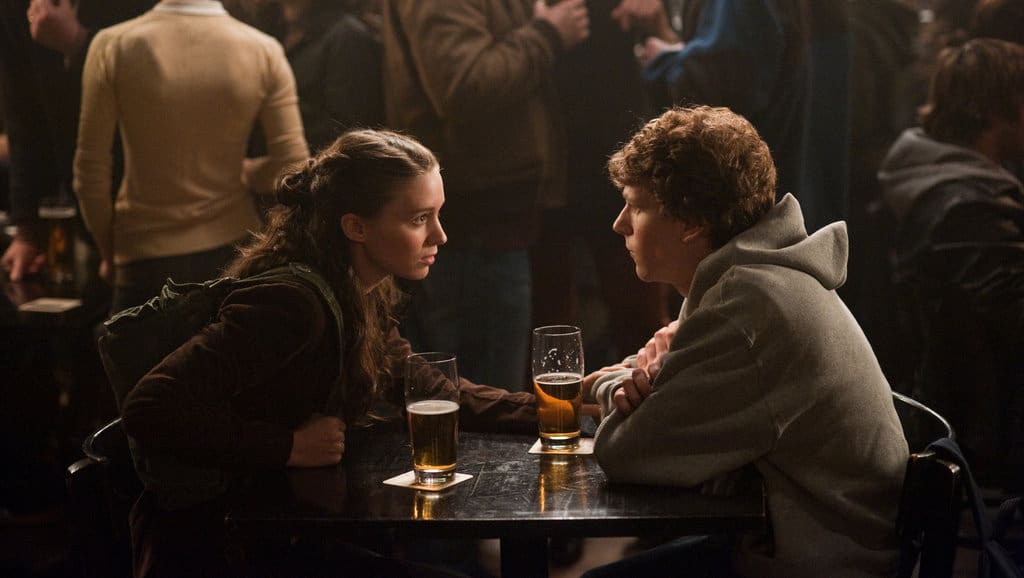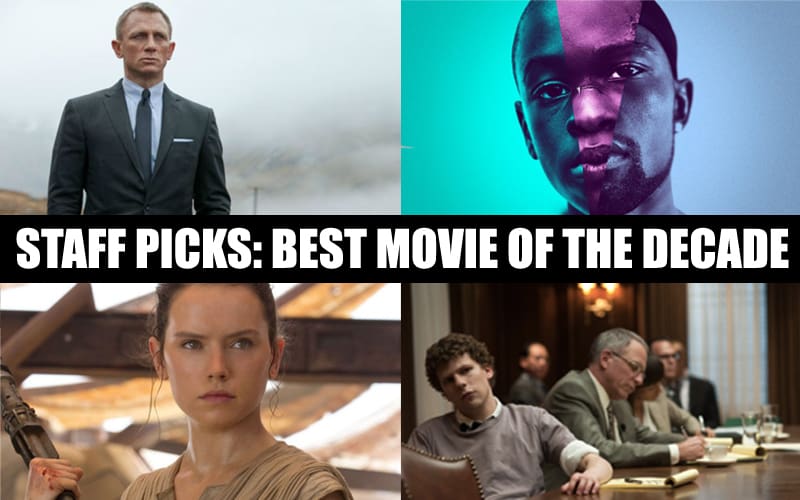It’s perhaps cliché to say, but the 2010s have been an incredible decade for movies. From the mind-bending visuals of Inception to the “eat the rich” thrills of this year’s Parasite, the period’s best movies felt both like reflections of the zeitgeist and pop cultural game-changers.
So, in order to celebrate the end of the decade, we at The Pop Break picked some of our favorite films from 2010 to 2019.

The Social Network — Alex Marcus
When trying to answer the question of which film is the decade’s best, one has to weigh several factors. Are you placing a premium on which film captured the zeigiest best? How about attempting to assess the most important film? Or are you simply focusing on your personal favorite? Luckily for me, 2010’s The Social Network manages to top all three criteria.
The film is written by one of my all time favorite screenwriters, Aaron Sorkin, directed by one of the most talented directors of his generation, David Fincher. It also features an impressive array of talented young actors, including Armie Hammer, Andrew Garfield, and Rooney Mara, who would go on to make their own unique marks on film in the decade to come. And it stars Jesse Eisenberg, an actor I greatly admire, who makes a meal out of all the contradictions and insecurities at the heart of the film’s fictionalized Mark Zuckerberg as he goes from flip-flop-sporting, narcissistic and status-obsessed outsider to the youngest billionaire on the planet.
From strictly a film perspective, this movie excels on nearly every level. The merging of Sorkin’s floral, rapid-fire dialogue with Fincher’s oppressive and moody aesthetic creates a beautiful alchemy impossible to look away from. The Social Network also has an impressively ambitious structure, choosing to tell the origin of one of the 21st Century’s most important corporations through intersecting layers of depositions, admin hearings, and flashbacks. It breathes fresh life into the biopic subgenre while creating a compelling dynamic where, despite being on his way to achieving his dreams within the core narrative, Eisenberg’s Mark Zuckerberg is consistently positioned in a defensive, oppositional crouch. This adds to the foreboding tone that gives this story of capitalistic success an air of fatalism and alienation—something at which Fincher excels. And yet cutting against that is an incredibly funny script, including an Andrew Garfield comedic freak out over an incident involving a chicken which is truly for the history books.
It’s easy to look at the subject matter of The Social Network in retrospect and see it as an obvious inevitability. However, I remember way back in 2010 when, ahead of the film’s debut, many wondered why anyone would see a movie about Facebook. Back then, the social networking site was certainly a force online. The film’s credits remind the audience that Facebook is now in over a hundred countries and has over 500 million users, making real life Mark a billionaire. Since then, Facebook’s reach is in the billions and is a long way away from its humble roots marketing towards college students.
As we see Mark Zuckerberg appear on TV every few months testifying before Congress to defend his corporation’s role in spreading political propaganda, swaying elections, and facilitating genocide in foreign nations all while allegedly practicing anti-competitive business practices and playing fast and loose with users privacy, it’s hard not to be reminded of Eisenberg’s dismissive and egotistical performance in The Social Network‘s deposition scenes, which hide a deep reservoir of insecurity and loneliness. Even more prescient is the film’s handling of fragile masculinity, which drives so many of the characters on screen and feels now like a defining theme of the decade in both art and real world events. The film may have played fast and loose with some facts and certainly could have been more diverse in its casting choices, but I truly cannot imagine a more perfect film to speak to our current moment while also being such a rich cinematic experience.


